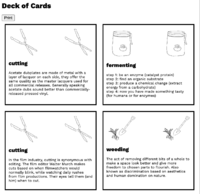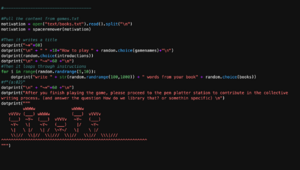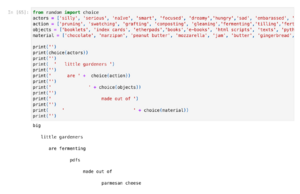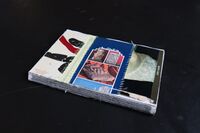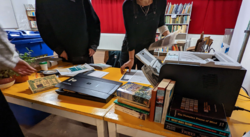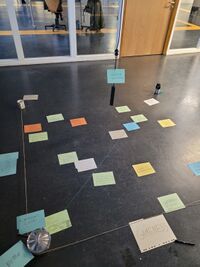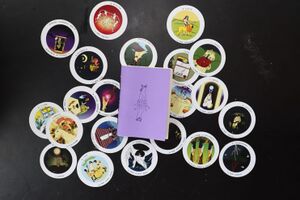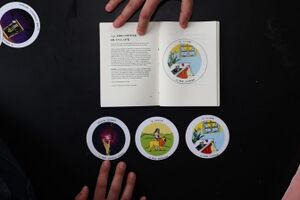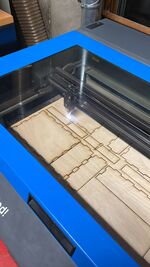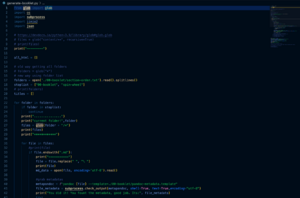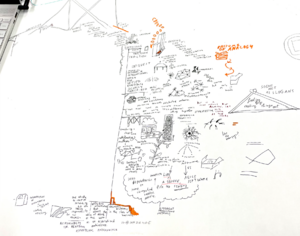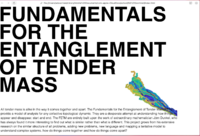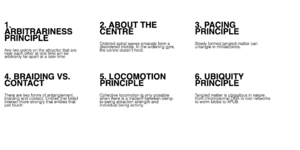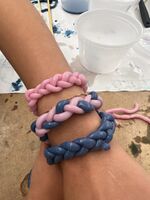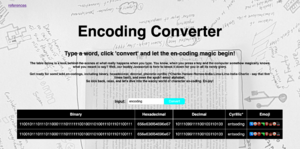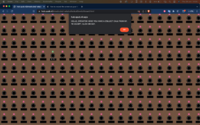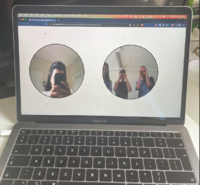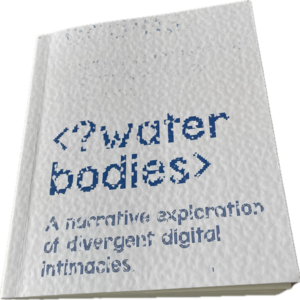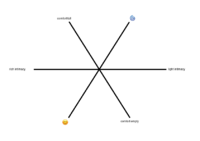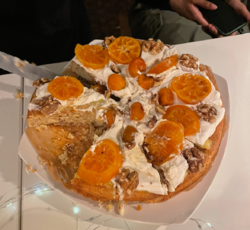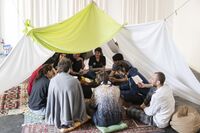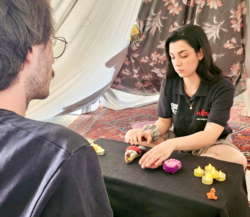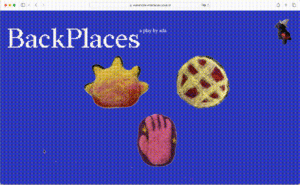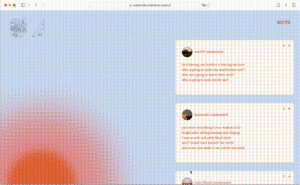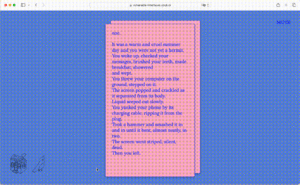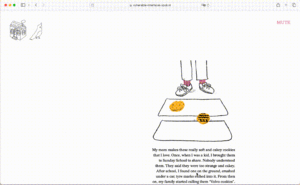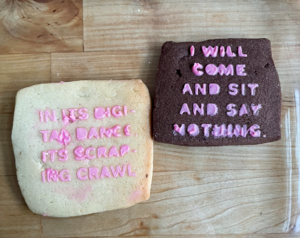User:Ada/Final presentation: Difference between revisions
No edit summary |
No edit summary |
||
| Line 2: | Line 2: | ||
==<span style="font-family: 'Trebuchet MS'; font-size: 20px;"> year1: contributions to the special issues </span>== | ==<span style="font-family: 'Trebuchet MS'; font-size: 20px;"> year1: contributions to the special issues </span>== | ||
<h2 style="font-family: 'Trebuchet MS'; color: | <h2 style="font-family: 'Trebuchet MS'; color: black; font-size: 18px; background-color: #ffb6d3"; padding: 5px;">two years hightlights</h2> | ||
<p> | <p> | ||
| Line 31: | Line 31: | ||
|} | |} | ||
{| | {| style="border: 1px solid white; color: black;background-color: white; font-family: 'Trebuchet MS'; font-size: 15px;" | ||
|+ | |+ | ||
| colspan="2" style="background-color: #BDB5D5;" | | | colspan="2" style="background-color: #BDB5D5;" | | ||
Revision as of 10:26, 16 June 2024
year1: contributions to the special issues
two years hightlights
| 00. | ----> to now | |
|---|---|---|
| research methodologies | Background in scientific social research on media and technology | ✷ Research: Experiential research, improvisational exploration, close reading, and analytical observation.
✷ Note-taking: Collective reading and note-taking on Etherpads and big papers. ✷ Writing: Writing as research, speculative and experimental writing, and clear, intentional methodology. |
| technical practice | background in three very separate practices of baking, social science and illustration. | ✷ Prototyping practice: new materials, mixing media!
✷ Coding: python to write poetry, make cards, make books, scan and print, html, css, javascript and php. ✷ Making books: web-to-print and paged.js, glue-binding and rapid book making. |
| organisational skills | ✷ Git as a way to collaborate on big coding projects.
✷ Organising events and exhibitions, how to write a tech rider, how to communicate when so many parts are moving. |
Special Issue 19: Garden Leeszal |
Garden Leeszal was a momentary snapshot of the state of a library seen through the metaphor of gardening—an open conversation; a collective writing tool, a cooperative collage and an archive. | |
| research
methodologies |
✷ close reading and theories to carry through
✷ collective writing as a research method |
cards we collectively wrote for the event and made with python |
| technical practice | ✷ python experimentation: as a way to generate poetry, as a way to make cards and as a way to scan and print
✷ understanding servers through breadcube (our own) ✷ using the terminal! |
<---- python script to make
"gardening" instructions for a library
"A House of Dust" inspired generative poetry --> |
| organisational skills | ✷ Making a coherent public event with different steps, minds and ideas
✷ Using etherpads and collective writing as methods for organisation ✷ wiki documentation ;) |
↓ the final book with the content I archivedthe process of scanning and printing through python ---> |
|---|---|---|
Special Issue 20: Console |
Console is an oracle; an emotional first aid kit that helps you help yourself. Console invites you to: open the box and discover ways of healing; Console gives you a new vantage point; a set of rituals and practices that help you cope and care. | |
| research
methodologies |
✷ Applying media ideology and annotating within context
✷ Improvisational exploration and experiential research. |
<---- physical map of the intersection
between games and rituals, the theme of this special issue. |
| technical practice | ✷ Found ways to combine media forms in the same project by illustrating the cards and generating the pattern with python again.
✷ Station skills: laser cutting the boxes. ✷ Web-to-print: used paged.js as a way to make the console book. |
<--- oracolotto cards
and booklet laser cutting of the boxes of console ↓ |
| organisational skills | ✷ Collective book making: using paged.js and git to make a collective book. | <-- booklet generating script |
Special Issue 21: TTY |
This issue started from a single technical object: a Model 33 Teletype machine, the bridge between typewriters and computer interfaces. Through guest contributions, we explored the intersection of historical and contemporary computing. Along the way, we created gestures, concrete vinyl poetry, phone stories, and much more. | |
| research
methodologies |
✷ experimenting with merging methods even more. Fundamentals was playful exploration of scientific terminology I am used too as a creative tool, is a website using html and css and finally became friendship bracelets and an algae knitting circle.
✷ research as other people's knowledge, direct learning and trust in experiential knowledge. |
note taking on a collective huge piece of paper --><--- fundamentals website and theory
algae friendship bracelets from the algae knitting circle workshop ----> |
| technical practice | ✷ Web design: html, css and javascript practice | javascript encoding converter with binary, hexadecimal, Cyrillic and emoji ---> |
| organisational skills | ✷ weekly release as a complicated routine of caretaking and publishing, self-organising and other-organising | |
| Summer camp:
Interactive Telecommunications Program (ITP) |
||
| ✷ during the last month of class, I went to ITP in New York
✷ learnt more javascript ✷ From XPUB research and Telecom museum collaboration made Collect Call. A javascript based "calling switchboard" two-way-only webcam website. |
the front page of js generated switchboard. ↓the calling page and me calling XPUB from NY to Constant, Brussels ------> | |
year2: thesis and project
THESIS: <?water bodies> a narrative exploration of divergent digital intimacies
All intimacy is about bodies. Is this true? Does it matter? I doubt it. Do you know? Let’s find out, maybe.
In my thesis, I explored digital intimacies, questioning whether physical presence is truly necessary for intimacy. I also looked at how identities can fluidly exist across both human and digital realms. Instead of trying to resolve the tensions between virtual and real-life experiences, I used personal stories and shared experiences to show how online interactions can transcend physical limitations and reshape who we are. I focused on the idea of a digital body—a representation of ourselves similar to a dream version of our physical form. Through this concept, I discussed how digital bodies can offer relief for people with types of stigmatised pain and how they can foster healing connections for diverse individuals. At the same time, I examined how prolonged use of digital intimacy can have negative effects.
0. DIGITAL BODIES
a. what is a digital body?
b. body vs. computer
c. bot-feelings
1. DIGITAL COMFORT
a. comfort care
b. uncomfortable comfort
c. unbearable intimacy
2. A LIFE TO BE HAD
PROJECT: Backplaces
✷ Is all intimacy about bodies? What makes intimacy? What happens when our bodies distance intimacy from us?
✷ Backplaces is a web anthology of poems and short stories exploring these questions--about having intimacy without a body and a body without intimacy.
✷ I created three webpages using html, css, javascript and php. Each represents a unique performance or project.
plans for final publication and grad show
For the grad show I will have an exhibition where I will take quotes from my thesis and each part of the project and ice them onto cookies. I will then put the cookies onto big white pedestals and ask people to eat them. Under each cookie will be a printed square with the qr code of the website and an invitation to be eaten.
The play ends as all plays do. The curtains close, the website stays but the stories will never sound the same. It’s one last game, one last joke to ask my question again. For the final act, I ask you to eat digital stories. To eat a comment, to eat a digital intimacy. Sharing an act of physical intimacy with yourself and with me, by eating sweets together. Sweets about digital intimacies that never had a body. There is no moral, no bow to wrap the story in. A great big mess of transcendence into the digital, of intimacy and of bodies. The way it always is. Thankfully.

